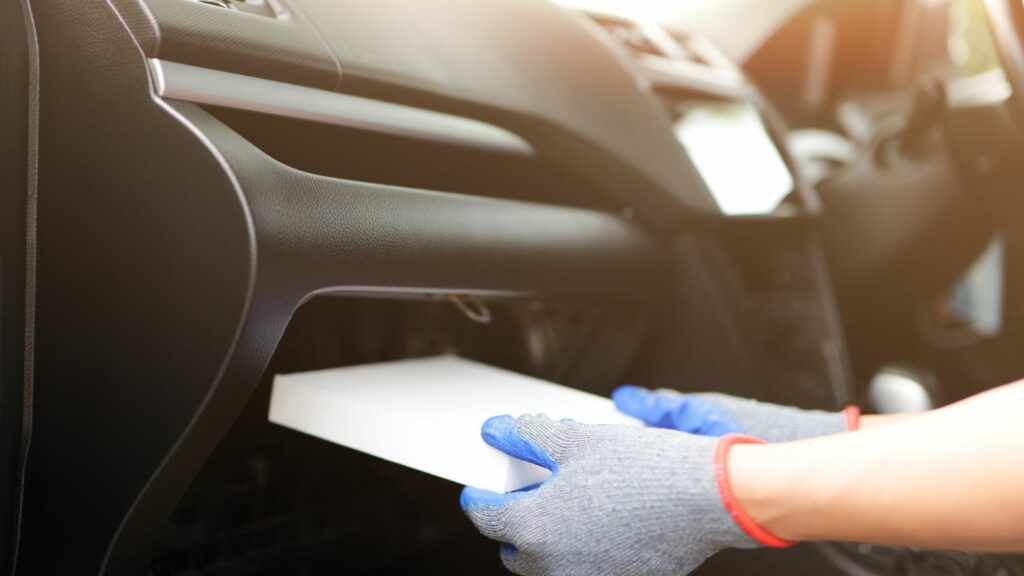For many, a vehicle is like a second home on wheels. Just as you would keep the air in your home clean, maintaining your vehicle’s air and cabin filters is crucial. These filters are your first line of defense against outdoor pollutants and allergens, making them indispensable for anyone who wants to breathe easily while driving.
Maintaining clean air and cabin filters in your vehicle isn’t just about mechanics—it’s critical to creating a healthy and enjoyable driving environment. This guide underscores the importance of regular cabin and air filter replacement and maintenance for enhancing air quality inside your car and safeguarding the respiratory health of all occupants.
Function of Air and Cabin Filters
Air and cabin filters are fundamental in enhancing the driving experience by maintaining clean air within the vehicle. The engine air filter protects the engine from airborne contaminants like dust, dirt, and debris, ensuring only clean air mixes with the fuel for combustion. This function not only helps maintain efficient engine performance but also contributes to reduced emissions.
The cabin air filter, on the other hand, plays a vital role in improving the air quality inside your vehicle. It traps pollen, bacteria, dust, and exhaust gases that might enter the cabin through the HVAC system and prevents these pollutants from affecting the passengers’ comfort. Regularly replacing the cabin air filter could be especially beneficial for individuals with allergies or respiratory conditions, as it ensures a cleaner, healthier environment within the car.
These filters also help prevent your car’s air conditioning and heating vents from clogging. A clean cabin filter ensures optimal airflow from the vents, keeping your car’s interior temperature comfortable regardless of outside weather conditions. Over time, filters that are not replaced can diminish HVAC system efficiency, leading to higher fuel consumption and decreased comfort due to poor air regulation.

These filters also may also help maintain the effectiveness and longevity of vehicles equipped with advanced climate control systems. By ensuring both the air and cabin filters are well-maintained, vehicle owners can enjoy purer air and a more responsive and economical vehicle. Thus, regular checks and replacements of these filters are essential for enhancing the driving experience and maintaining the vehicle’s interior air quality at optimal levels.
Signs of Filter Problems
Detecting when your air and cabin filters need replacement is key to maintaining optimal air quality and vehicle performance. Common indicators include a noticeable decrease in airflow from the cabin vents, which may signal a clogged cabin filter. Additionally, if your car’s interior starts to smell musty, or you notice an unusual increase in noise from the HVAC system, it’s likely time to check your filters. A visual inspection might reveal filters that are visibly dirty, darkened, or debris-filled, which can impede airflow and degrade air quality inside the vehicle.
Windows persistently fogging up more than usual can also signal filter issues, as clean filters help regulate the humidity and temperature inside the cabin efficiently. If you experience breathing discomfort while driving, it could also signal the cabin air filter is no longer effectively filtering out pollen and other irritants, leading to potentially poor air quality inside your vehicle.
A clogged filter triggers the Malfunction Indicator Light (MIL), commonly referred to as the “Check Engine Light.” Once the MIL illuminates, the vehicle enters Limp Mode, which affects vehicle performance. Limp Mode is a safety feature in vehicles that activates when a fault is detected by the engine or transmission control unit.

This mode prioritizes essential functions by turning off non-critical components like air conditioning and reducing the vehicle’s speed to prevent further damage.
Both engine air filters and cabin air filters should be inspected and replaced as indicated in the owner’s manual as part of routine scheduled maintenance.
Maintenance Schedule
To ensure optimal air quality, it’s important to regularly check and replace your vehicle’s air and cabin filters. Generally, replacing the cabin air filter every 15,000 to 30,000 miles is recommended, but check your owner’s manual for specific guidance tailored to your vehicle. Regular inspections by a professional can also help determine if your filters need a quicker replacement due to heavy use or environmental factors.
Professional vs. DIY Replacements
Deciding between professional and DIY air filter replacements involves weighing the benefits of expertise against personal convenience and cost savings. While DIY replacements can be cost-effective and offer a satisfying sense of accomplishment, professional replacements come with the assurance of thorough, correct installation and typically include a comprehensive system check. Professionals have the right tools and knowledge to identify related issues that might not be apparent to the average car owner, such as detecting signs of wear in surrounding components or improper installation issues from the past.
Opting for a professional service, such as those offered at Pep Boys, can also save time and eliminate the hassle associated with correctly sourcing filters and disposing of old ones. Additionally, professionals can often spot early signs of problems that could become serious if left unaddressed, providing preventative maintenance that extends beyond just changing a filter. The benefit of expert care is especially pronounced in newer or more complex vehicle models, where filter accessibility might be challenging or special tools are required.
Final Thoughts
Maintaining clean air and cabin filters is not just a maintenance task; it’s an investment in the health and enjoyment of your vehicle’s environment. Ensuring these filters are regularly checked and replaced can significantly enhance the quality of the air you breathe while driving. For the best care, consider professional services to maintain optimal air quality, and remember, whether it’s filters or high-quality tires, finding regular auto repair near me ensures your vehicle is pleasurable to drive.
